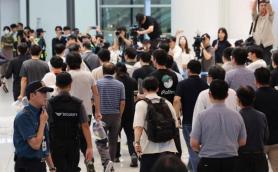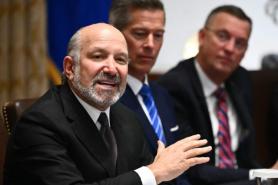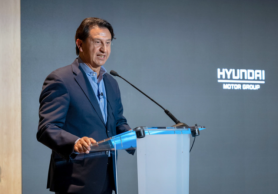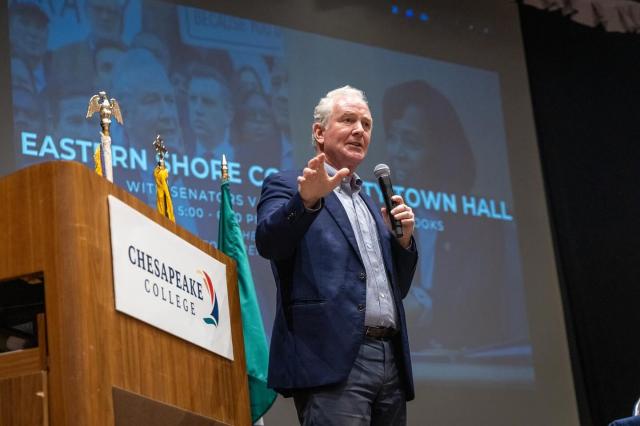
SEOUL, September 17 (AJP) - Despite the stream of damage-control statements from Washington, the recent massive immigration raid at a South Korean battery plant in Georgia has rattled economic cooperation and investment prospects with Seoul, argued a U.S. Democratic senator.
Senator Chris Van Hollen, representing Maryland, said in an e-mail interview with AJP on Tuesday that the Georgia raid threatened "our strong relationship with South Korea and the prospect of future investments" in U.S. domestic manufacturing.
The lawmaker added that Trump's immigration policy "clearly isn't focused on 'the worst of the worst,' or any sort of targeted approach" that America could support. The raid exposed “broken immigration system and the need for sane, fair immigration policies that keep our communities safe and support economic opportunity."
"Trump has done nothing to achieve those goals,” he added.
The surprise crackdown on the Georgia facility under construction by Hyundai Motor and LG Energy Solution led to arrests and a weeklong detention of 475 workers, mostly hired by the top Korean battery maker.
The incident has unsettled Korean businesses that have poured billions of dollars into U.S. projects spanning from batteries and semiconductors to shipbuilding and automobiles.
Some are reviewing potential risks and alternative sites such as Mexico or Canada. The operation of the Georgia EV battery plant is expected to be delayed to 2026 instead of 2025 due to a hiccup in the construction process.
South Korean President Lee Jae Myung, in the press conference marking his 100th day in office, mused that the incident could have "a significant impact on future direct investment in the U.S. under the current circumstances, our companies may be very reluctant to expand their investments in America," he said.
Seoul has taken a cautious stance in signing a trade deal with Washington, even as the U.S. warned that the tariff rate on Korean imports could be spiked to 25 percent instead of 15 percent in the aftermath of the Georgia raid.
It was the largest single-site workplace raid in U.S. history conducted by the Department of Homeland Security. Following government-led negotiations between Seoul and Washington, the 317 South Koreans were released after a week in detention. One individual chose to remain in the U.S. for family reasons, while the rest returned home last Friday on a chartered flight.
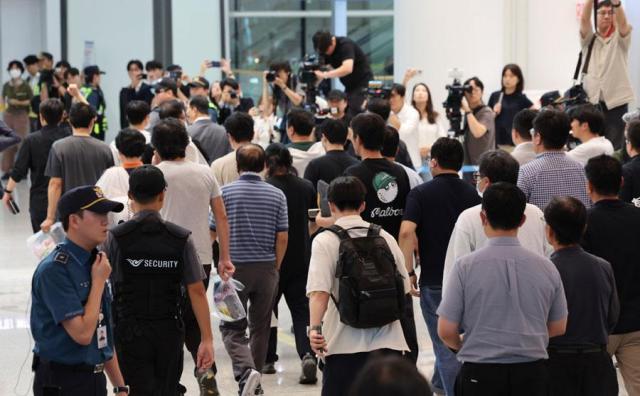
Those who returned have alleged human rights violations during their detention. A detainee’s diary described how they were denied Miranda rights and due process. Some were reportedly carrying business visas, which allow temporary stays for training or equipment setup, raising questions about whether the arrests were justified.
South Korea's presidential office said Monday the government, together with the companies employing the detainees, is conducting a closer review of whether the rights of its citizens were violated.
Trump appeared to indirectly address the controversy raid on Sunday on social media platform Truth Social, writing he did not want to "frighten off or disincentivize investment into America by outside countries or companies." He added that foreign firms bringing complex projects to the U.S. should be able to bring in experts temporarily "to teach and train our people" before returning home.
U.S. Deputy Secretary of State Christopher Landau also expressed "deep regret" over the detentions and pledged steps to prevent a repeat. He emphasized that those released would face no penalties when reentering the U.S.
Based on the allegations of mistreatment, some returnees are now considering taking legal action against U.S. immigration authorities for what they called unlawful detention procedures and excessive force.
According to Han Jeong-ae, a lawmaker with South Korea's Democratic Party, of the 317 nationals detained, 170 had entered on ESTA travel waivers, 146 on B-1 or B-2 visas, and one held an employment authorization document (EAD).
Copyright ⓒ Aju Press All rights reserved.


